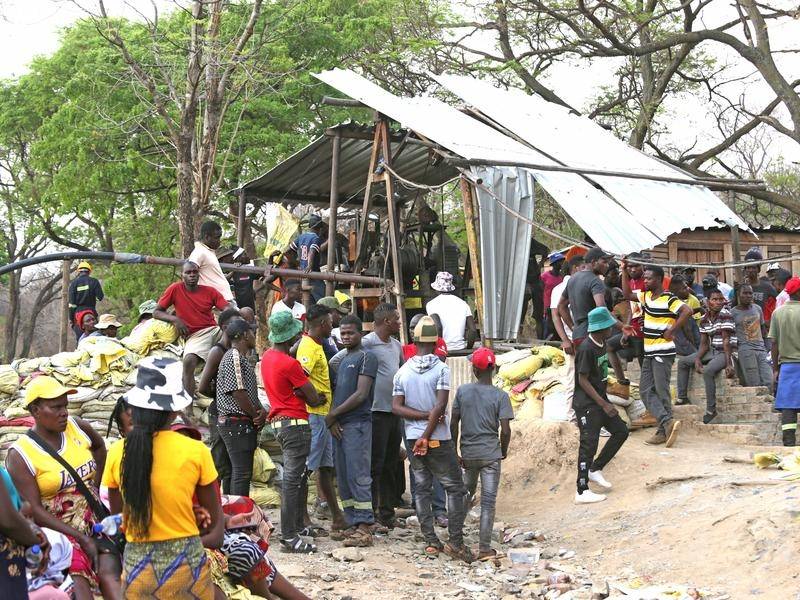At least nine miners were killed on Friday after a shaft in an informal gold mine collapsed, the Zimbabwe Miners’ Federation (ZMF) and an engineer at the site said.
The death toll from the shaft collapse at the disused gold mine was expected to rise to 13, according to state media.
ZMF president, Henrietta Rushwaya, said on Saturday that four bodies had been recovered so far, while five others were still stuck under rubble.
However, retrieval operations are complicated by the fact that the shaft is unstable.
The mining engineer Hussein Phiri said it was difficult to retrieve the bodies because the mine was still collapsing. The incident occurred at the Bay Horse Mine in Chegutu, some 120 kilometres west of Harare’s capital.
A survivor recalled that the mine collapsed as he entered with a colleague, then saw other colleagues, numbering about 18 or 20, rushing out and joined them to escape together.
Mining minister, Soda Zhemu, who came to oversee the rescue efforts, confirmed that 21 miners had survived the collapse. He said three other miners were thought to be missing, but their whereabouts were unknown.
Several hundred residents watched in anguish on Saturday afternoon, waiting for news of family or colleagues, as rescue workers tried to retrieve bodies from the mine.
With the economy floundering, illegal mining is widespread in Zimbabwe, often in very dangerous conditions.
Accidents are common in the mineral-rich country. In 2019, 24 miners died when an abandoned pit flooded after torrential rains in central Zimbabwe.
Incidents of mine collapse, often involving artisanal miners, are common in the southern African country that is rich in gold, coal and diamonds. Zimbabwe also has Africa’s largest reserves of lithium, a mineral in global demand due to its use in electric car batteries.
Zimbabwe’s mineral-rich national parks, abandoned mines, rivers and even towns are often swarmed with people, including young children, seeking to find valuable deposits. It is one of the few economic activities still going on in a country that has suffered industry closures, a currency crisis and high unemployment over the past two decades.
By: Isaac Clottey










